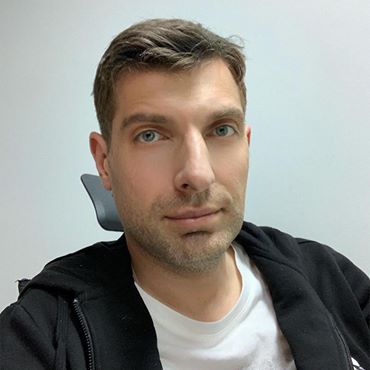The amusing photo filter, FaceApp, which uses artificial intelligence to digitally age your face, has gone viral once again recently, with millions of altered photos shared on social media.
Even though the latest spurt of shares is a new development, which can be attributed, at least partially, to the #FaceAppChallenge, the company behind the product has been around since 2017.
The filters were developed at Wireless Lab, a Russian company. Shortly after they became popular, questions arose about privacy issues related to the app. And the concerns about the Russian meddling in the 2016 U.S. presidential election did not make it easier for the developers to explain how it works.
“Even though the core R&D team is located in Russia, the user data is not transferred to Russia,” the company assured in a message to Tech Crunch on Wednesday.
The fact that a company is based in Russia does not automatically make it an agent of the Kremlin, although government-linked businesses are based in the country. Here is what we know so far about the Wireless Lab founder and privacy questions related to FaceApp:
FaceApp isn’t creepy because it’s Russian, it's creepy because it’s capitalist. https://t.co/mlQ7zTLA11
— VICE (@VICE) July 17, 2019
Who is the Person Behind Wireless Lab?
Yaroslav Goncharov, who showed the users how they are going to age, grew up in Russia’s St. Petersburg where he studied at the Academic Gymnasium of St. Petersburg State University, formerly known as the physics and mathematics boarding school № 45.
Upon finishing school, he enrolled into St. Petersburg State University’s Faculty of Mathematics and Mechanics. As a second-year student, Goncharov was already working full-time.
Later, he would fly to the United States for work, where he received an offer from Microsoft. He stayed with the company for two years.
“I worked at Microsoft in Redmond, U.S., and in the evenings I wrote [code for] a bot with whom one could play poker. The neural network was only a small, evaluative part of this bot – at the time, there were no ways to create a solution entirely based on the neural network,” Goncharov said in a 2017 interview with the Russian Afisha Daily.

“After that, I worked on several projects related to in-depth training, on a project related to speech analysis. And about a year ago [in 2016] I decided to use this progressive technology for photo processing. This is how FaceApp came out.”
In 2006, Goncharov became a co-founder of SPB Software mobile app company, where he held the position of technical director.
In 2011, SPB Software was bought out by Yandex, a Russian multinational corporation specializing in internet-related products and services. The deal was worth USD $38 million.
After leaving Yandex in 2013, Goncharov created Wireless Lab.
“FaceApp was born at the junction of two important trends. The first is the ever-growing value of photos and videos. There is an opinion that stories from Snapchat, Instagram and their analogs will soon kill news feeds like Twitter. Facebook is already moving in that direction,” Goncharov told Afisha two years ago.
“The second trend is neural networks. That’s what they call the simplified analog of the human brain implemented in computer code. To create it, they build a huge network of software simulations of neurons and synapses capable of analyzing and storing information. Such technologies underlie machine learning, artificial intelligence, cybernetics, and much more. I have been doing this for quite some time now. I trained the first neural network about ten years ago.”
In 2018, Wireless Lab moved from St. Petersburg to Skolkovo, an “innovation city” near Moscow that is often presented as Russia’s Silicon Valley. Skolkovo was first announced in 2009 by then-President Dmitry Medvedev. In addition, the company reportedly has an office in Wilmington, North Carolina, and FaceApp Inc is registered there.
According to Goncharov, the trends we are seeing now is just the beginning, and given the speed of technology development, the potential for neural networks is limitless.
Should You Stop Using FaceApp?
Among the main privacy concerns regarding FaceApp is that it uploads users’ photos to the cloud instead of processing them on devices. Another one is how long the company holds onto photos.
“We only upload a photo selected by a user for editing. We never transfer any other images from the phone to the cloud,” Wireless Lab told Tech Crunch. “We might store an uploaded photo in the cloud. The main reason for that is performance and traffic…Most images are deleted from our servers within 48 hours from the upload date.”
The company insists that it doesn’t sell or share any user data with any third parties, and it accepts requests from users for removing their data from its servers, but its support team is currently overloaded.
Despite reassuring words from the makers, Tiffany Li, a technology attorney and legal scholar, who is a Postdoctoral Fellow at Yale Law School’s Information Society Project, said users should rather be worried about the overall privacy protection model.
“Stop using FaceApp because there are no controls on how your face data is used. But also – walking around anywhere can get your face included in facial recognition databases. So … stop going outside? This privacy protection model doesn’t work,” she wrote on Twitter.
Backlash against facial recognition often centers on the source (too many cameras). But we also need controls on how companies and universities can use the face data, regardless of source. https://t.co/0HLNe98lTT
— Tiffany C. Li (@tiffanycli) July 13, 2019




















